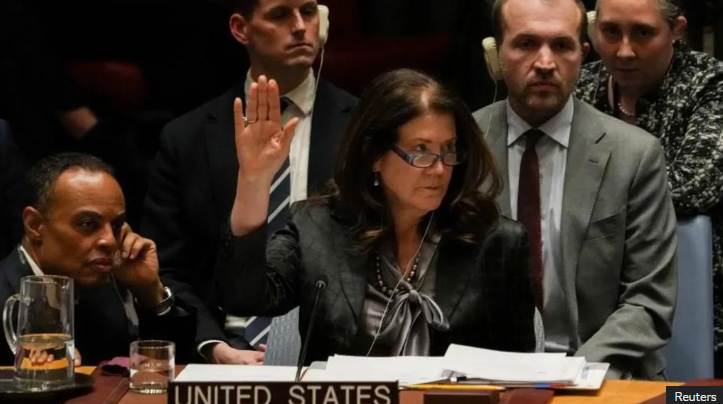
The United States has aligned with Russia in two crucial United Nations votes marking the third anniversary of Russia’s invasion of Ukraine, signaling a shift in the Trump administration’s stance on the conflict.
US-Russia Alignment at the UN General Assembly
The first vote at the UN General Assembly (UNGA) saw both nations opposing a European-backed resolution condemning Russia’s invasion and affirming Ukraine’s territorial integrity. Despite this opposition, the resolution passed with 93 votes in favor, while the US, Russia, Israel, North Korea, Sudan, Belarus, Hungary, and 11 other states voted against it. Additionally, 65 countries abstained.
The US then introduced its own resolution at the UN Security Council (UNSC), calling for an end to the war but notably omitting any criticism of Russia. The measure passed, although key US allies—the UK and France—abstained after their proposed amendments were vetoed.
Transatlantic Divide Over Ukraine
These competing resolutions highlight growing tensions between the US and its European allies. French President Emmanuel Macron, currently visiting President Donald Trump at the White House, is working to mend deep divisions over Ukraine policy. Similarly, British Prime Minister Sir Keir Starmer is scheduled to visit Washington on Thursday.
The Trump administration’s policy shift has strained traditional alliances, casting uncertainty over America’s long-term commitment to European security. This was evident in the UNGA session, where the US-backed resolution mourned the loss of life in the “Russia-Ukraine conflict” without explicitly blaming Russia. Ukrainian Deputy Foreign Minister Mariana Betsa countered, urging the global body to reaffirm that aggression must be condemned, not rewarded.
Security Council Vote: A Rare US-European Rift
The more powerful 15-member UN Security Council saw the unamended US resolution pass with 10 votes, while the UK, France, Denmark, Greece, and Slovenia abstained. Acting US envoy Dorothy Camille Shea defended the measure, calling it “a simple historic statement that looks forward, not backward,” emphasizing its focus on ending the war.
This marks one of the sharpest divergences between the US and its European partners since Russia launched its full-scale invasion three years ago. Historically, the Security Council has been deadlocked due to Russia’s veto power, making the UN General Assembly the primary forum for global discussions on Ukraine—though its resolutions remain non-binding.
As Ukraine’s fight for sovereignty continues, the widening transatlantic rift raises critical questions about the future of Western unity against Russian aggression and the role of the United Nations in resolving the ongoing war.
